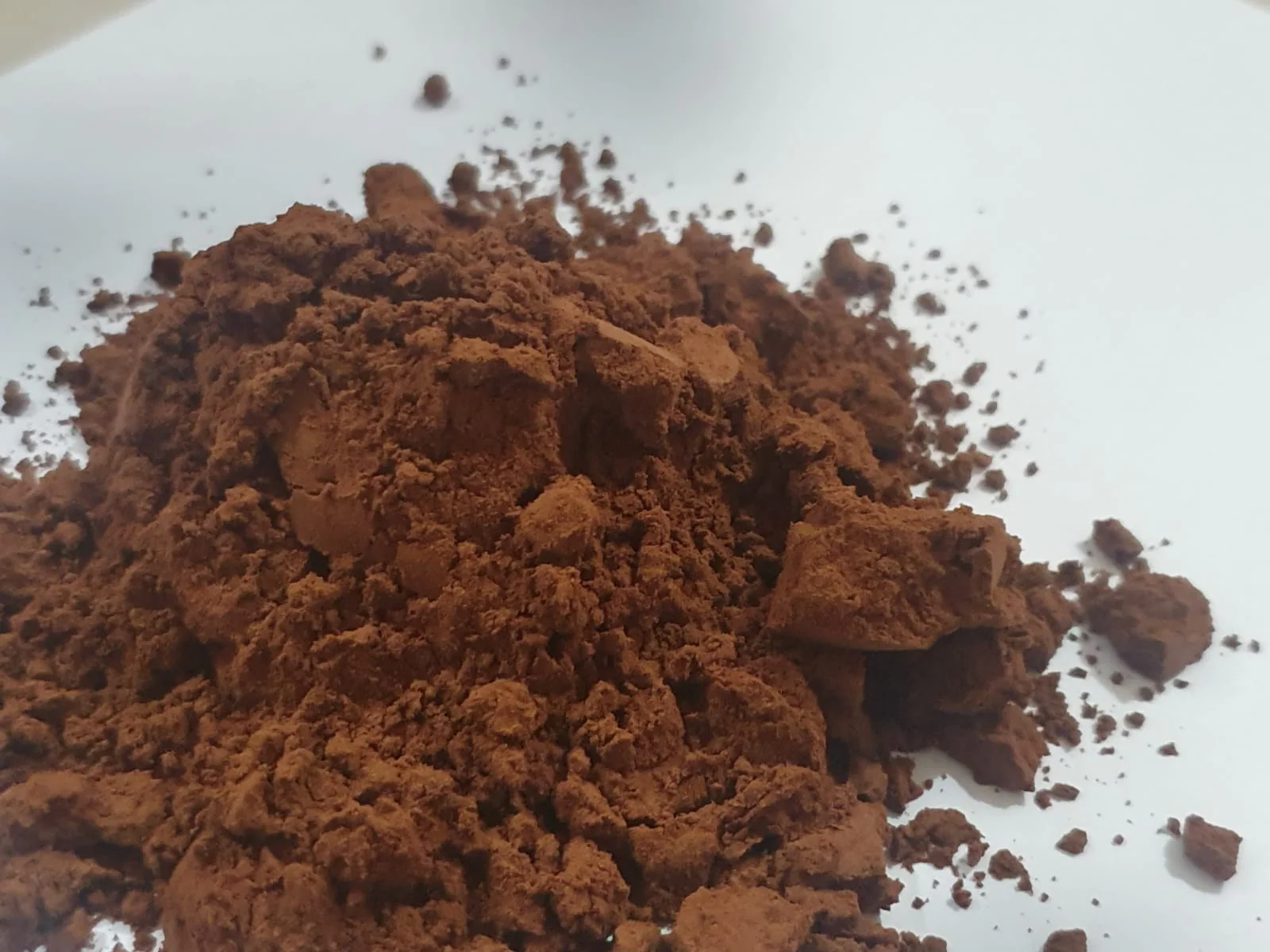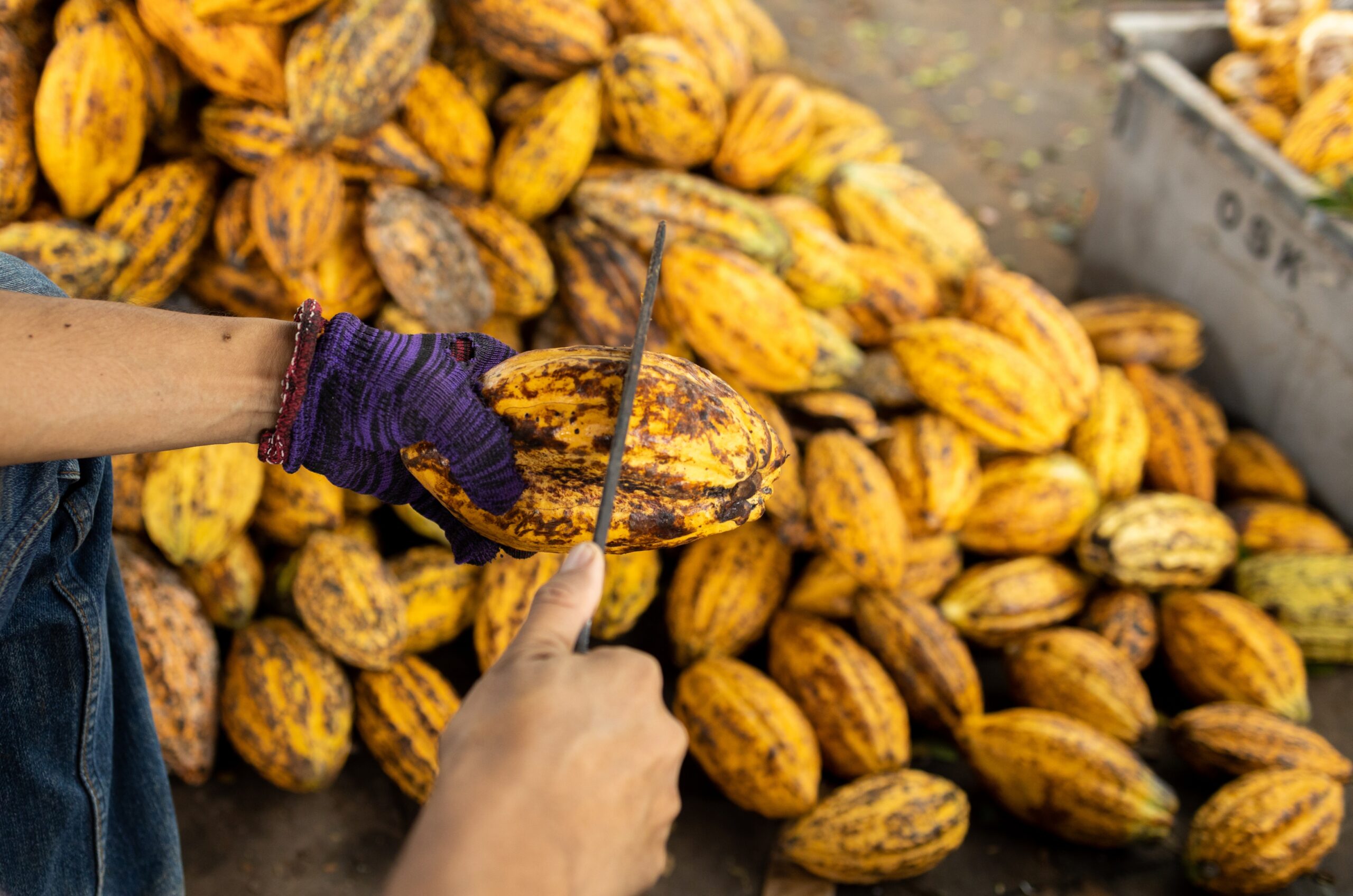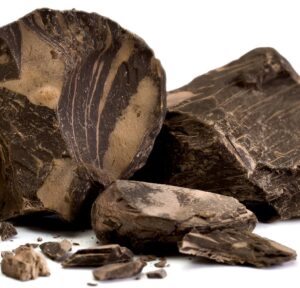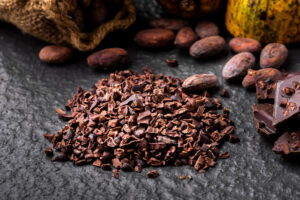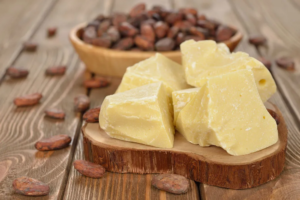Cocoa powder is one of the most important ingredients in the global food industry. From rich chocolate cakes to premium hot cocoa drinks, cocoa powder delivers the intense chocolate flavor that consumers love. It is available in different varieties, most commonly natural cocoa powder and alkalized cocoa powder (also known as Dutch-processed cocoa powder).
Today, buyers are not only interested in taste and quality but also in pricing and supply. With rising global demand, especially for African cocoa powder, manufacturers, bakeries, and chocolatiers want reliable information about the price of natural cocoa powder, the cost of alkalized varieties, and where to source premium cocoa powder in both bulk and smaller quantities.
Currently, the market price of cocoa powder is around USD 6,500 per metric ton (CFR, Africa). This rate applies to both natural and alkalized cocoa powder, provided buyers order at least one 20ft container. Suppliers can also arrange bulk cocoa powder shipments or smaller quantities for businesses that do not require full container loads.
What is Cocoa Powder?
| Type of Cocoa Powder | Description | Flavor & Color | Common Uses |
| Natural Cocoa Powder | Made by grinding roasted cocoa beans into powder without altering acidity. | Lighter brown color, slightly acidic, strong chocolate flavor. | Cakes, brownies, hot cocoa, baking recipes with baking soda. |
| Alkalized Cocoa Powder (Dutch Processed) | Cocoa beans are treated with an alkaline solution to reduce acidity. | Dark brown cocoa powder with a smoother, milder taste. | Premium chocolate drinks, desserts, ice creams, and recipes with baking powder. |
| Unprocessed Cocoa Powder | Minimal processing; closest to raw form. | Very bitter, intense chocolate flavor. | Specialty baking, health foods, dark chocolate recipes. |
| Organic Cocoa Powder | Produced from organically grown cocoa beans without pesticides or chemicals. | Can be natural or alkalized, depending on processing. | Clean-label products, health-conscious foods, vegan chocolates. |
| Regular Cocoa Powder | General term for commercially available cocoa powder (usually natural). | Medium brown, balanced flavor. | Mass-market chocolates, general baking, confectionery. |
Key Difference: Natural vs. Alkalized Cocoa Powder
-
Natural cocoa powder is acidic, with a pH of around 5.0, and reacts well with baking soda.
-
Alkalized cocoa powder (Dutch processed cocoa powder) has a neutral pH, darker color, and milder taste, making it ideal for drinks and gourmet recipes.
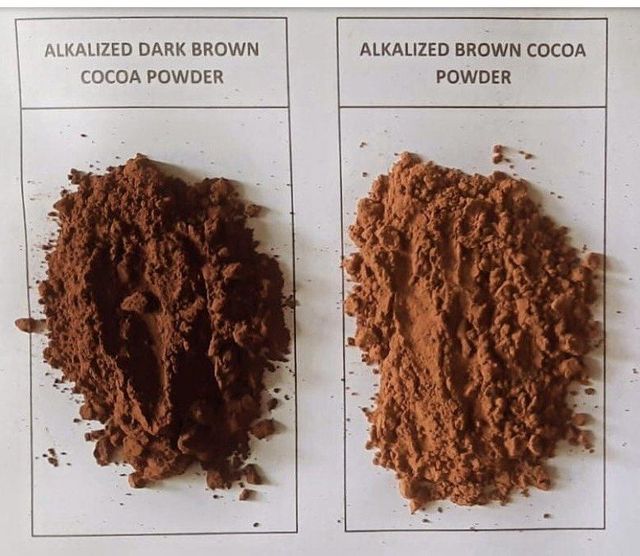
How Cocoa Powder is Produced
-
Harvesting Cocoa Pods
-
Fermentation
-
Drying
-
Roasting
-
Grinding into Cocoa Liquor
-
Pressing to Separate Cocoa Butter
-
Pulverizing into Cocoa Powder
Cocoa Powder Prices and Market Factors
Price of Cocoa Powder (Ghana)
Cocoa powder from Ghana is regarded as premium because of its consistent bean quality, strong chocolate flavor, and rich color. Ghana has strict quality control standards, making its cocoa highly demanded worldwide by chocolatiers and food manufacturers.-
MOQ: 15 TONS (20FT CONTAINER)
Why is Cocoa Powder Expensive?
-
Raw Cocoa Bean Prices
-
-
Cocoa powder prices are directly linked to the cost of raw cocoa beans. If cocoa beans from Africa (especially Ghana and Côte d’Ivoire) rise in price, cocoa powder follows.
-
-
-
Processing and Quality Standards
-
-
Producing premium cocoa powder requires advanced processing facilities. Alkalized cocoa powder (Dutch processed cocoa powder) often costs more because of the additional treatment it undergoes.
-
-
-
Supply and Demand
-
-
With more global demand for organic cocoa powder, vegan-friendly foods, and gourmet chocolates, suppliers are experiencing high demand. Limited supply means higher prices.
-
-
-
Export & Logistics
-
-
Shipping cocoa powder worldwide, especially from Africa to the Middle East, Europe, and Asia, involves logistics costs. Destinations such as cocoa powder in UAE, Saudi Arabia, and Qatar also factor in regional import duties and handling.
-
-
-
Global Cocoa Market Volatility
-
-
Weather changes, crop diseases, and political factors in cocoa-producing regions often lead to fluctuations in cocoa powder prices.
-
-
Bulk vs. Small Orders
-
Bulk cocoa powder (20ft container or more),the best price advantage, typically $6,500/MT.
-
Smaller bulk orders – available, but slightly higher per-ton cost due to packaging, handling, and shipping.
-
Retail/Small packs – significantly higher per kilo price, targeting bakeries, chocolatiers, and specialty shops.
| Product | Price (FOB, Africa) | Order Requirement |
| Natural Cocoa Powder | $6,500 / MT | Min. 1 x 20ft container |
| Alkalized Cocoa Powder | $6,500 / MT | Min. 1 x 20ft container |
| Organic Cocoa Powder (Premium) | Negotiable, higher than standard | Bulk orders |
| Bulk Cocoa Powder (mixed) | Depends on supplier | Bulk or smaller lots |
Uses of Cocoa Powder in the Food Industry
-
Chocolate Manufacturing
-
Cocoa powder is a key ingredient in dark, milk, and white chocolates.
-
Natural cocoa powder brings a strong, slightly acidic flavor, while alkalized cocoa powder is smoother, making it ideal for premium chocolates.
-
Organic cocoa powder is increasingly popular in clean-label, vegan, and sustainable chocolates.
-
Beverages and Drinking Chocolate
-
Alkalized cocoa powder (Dutch processed) is favored in hot chocolate mixes and cocoa drinks because of its deep color and smooth taste.
-
Unprocessed cocoa powder is sometimes used in energy drinks and health supplements due to its higher antioxidant content.
-
Cafés and specialty coffee shops often prefer dark brown cocoa powder for lattes, mochas, and milkshakes.
-
Bakery and Confectionery
-
Cakes, brownies, muffins, and cookies rely heavily on cocoa powder.
-
Natural cocoa powder reacts with baking soda, making it ideal for recipes that require leavening.
-
Chocolatiers often mix bulk cocoa powder with cocoa butter for coatings, fillings, and truffles.
-
Dairy Products
-
Ice creams, yogurts, and flavored milk products use cocoa powder for both taste and appearance.
-
Premium cocoa powder enhances creaminess and adds an indulgent touch to desserts.
-
Health and Nutritional Foods
-
Organic cocoa powder is widely used in protein powders, nutrition bars, and supplements due to its antioxidant and mineral content.
-
African cocoa powder is rich in magnesium, iron, and flavonoids, making it a functional food ingredient.
-
Specialty and Gourmet Foods
-
Dutch processed cocoa powder is essential in luxury desserts, artisan chocolates, and high-end patisserie products.
-
Cocoa powder from Africa is often marketed as premium cocoa powder for international gourmet brands.
FAQs on Cocoa Powder Prices (Natural and Alkalized)
What is cocoa powder?
What’s the difference between natural cocoa powder and alkalized cocoa powder?
-
Natural cocoa powder: Lighter in color, slightly acidic, and has a sharp chocolate flavor. Best for recipes that require baking soda as a leavening agent.
-
Alkalized cocoa powder (Dutch processed): Darker, smoother, and less acidic because it has been treated with an alkalizing agent. It mixes well in beverages and premium chocolates.
What is the price of cocoa powder?
Do you supply both bulk and smaller quantities?
What is the minimum order quantity (MOQ) for cocoa powder?
Is cocoa powder available in different grades?
-
Regular cocoa powder – standard grade for baking and beverages.
-
Premium cocoa powder – higher fat content and richer flavor, ideal for gourmet chocolates.
-
Organic cocoa powder – certified organic, free from chemicals, suitable for health-conscious markets.
Where can I buy both natural and alkalized cocoa powder in bulk?
What is the shelf life of cocoa powder?
Is cocoa powder healthy?
Where can I find a cocoa powder supplier in the Middle East?
Can I get samples before placing a bulk order?
-
Bulk cocoa powder in 25kg bags.
-
Smaller quantities (such as 5kg or customized packs) for artisanal chocolate makers and bakeries. Packaging can also be customized with buyer branding for wholesale distribution.

